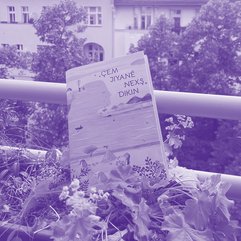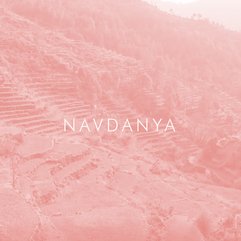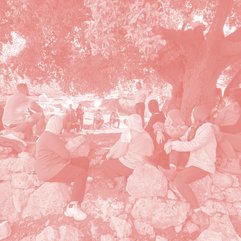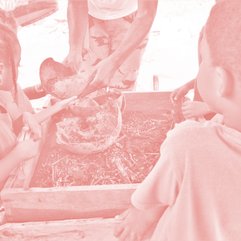Water connects: The Water Crisis in Kurdistan-Iraq
Local action and global cooperation – workshop, panel discussion and networking event
13.00-18.00
Save the Date
For Youths and Adults
in German/in English/Kurdisch

Iraq is among the countries most severely affected by climate change. Temperatures exceeding 50 degrees Celsius and the drying up of rivers present people with existential challenges. Political conflicts with Iran and Turkey over water in the Euphrates-Tigris basin exacerbate the crisis, as do tensions between the Iraqi government and the Kurdish Regional Government, nepotism within the political elite, and the precarious security situation.
For 30 years, HAUKARI has been working in the Garmian area of the Kurdistan Region of Iraq - the site of the Anfal operations carried out by the Iraqi regime in 1988, in which more than 100,000 people were murdered and numerous villages destroyed. Today, rural populations are leaving the villages rebuilt after 1991 due to water scarcity and migrating to the region’s cities, where unemployment and social conflicts are intensifying.
Since 2020, HAUKARI has been implementing water projects in the villages of the region together with medico international, local youth groups, and universities. At the heart of these projects are community-based solutions driven by the villagers themselves, which bring about immediate improvements to their living conditions: repairing wells, using solar energy, developing climate-resilient cultivation, and promoting inter-village resource sharing. These initiatives provide a counterbalance to the lengthy, costly, and top-down-oriented mega-projects of state institutions and strengthen cooperation between communities along waterways across ethnic and political divides.
In a workshop and evening event, project coordinators Diyar Ali, Ziyad Faiq, and Dalshad Ismael will join social and cultural anthropologist Şermin Güven - who researches the knowledge and stories of communities along the waterways in Kurdistan - to discuss the political, social, and gender-specific dimensions of the water crisis. Together, they will open a dialogue space with climate activists and development actors in Berlin on local opportunities for action and global cooperation.









